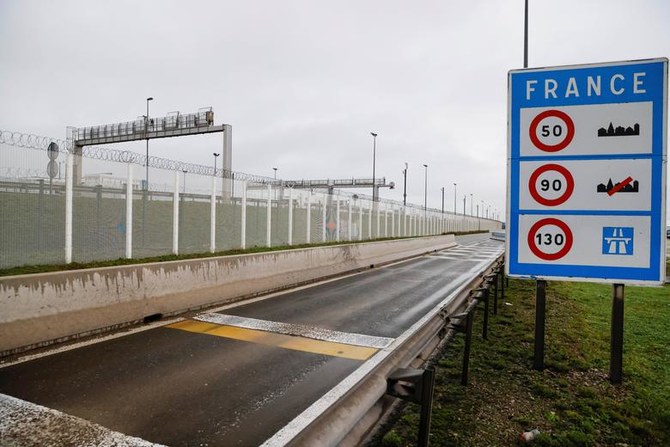LONDON: A British couple and their accomplice have been sentenced for trying to smuggle Iraqi migrants into the UK hidden in sofas.
Nicholas Fullwood, 48, and his wife Pamela, 45, both of Chesterfield, were stopped in their van by Border Force officers in the UK control zone in Coquelles, France on Jan. 5, 2019.
The couple said they were returning to the UK after picking up furniture in Lille. Officers searched their van and discovered two Iraqi men in the bases of two sofas.
A Home Office investigation later identified 31-year-old Azad Ahmadi, a car wash owner in Derby, as a suspect who helped organize the smuggling attempt with the Fullwoods, the Independent reported.
The Fullwoods pleaded guilty to charges of conspiracy to assist unlawful immigration. Ahmadi pleaded not guilty to the same charge.
At a hearing in Canterbury Crown Court, Nicholas Fullwood was sentenced to three years in prison while his wife was given a two-year suspended sentence.
According to a report in the Independent, defense lawyers said that Nicholas Fullwood was under duress due to money he owed to a loan shark, while his wife was found in a psychiatric report to have “significant problems” with “suggestibility and compliance”.
The court was also told that she has had cancer and was due to undergo an operation next month.
Ahmadi was described as the “the head” of the operation by Recorder Michael Turner in sentencing, the Independent reported. He was found guilty and jailed for four years and six months.
Immigration Minister Robert Jenrick said after sentencing that the British government was “determined to bring to justice the criminal gangs that undertake the repulsive trade of people-smuggling.
“The Home Office is working night and day to dismantle people-smuggling networks and tackle illegal migration head-on,” he added.



























